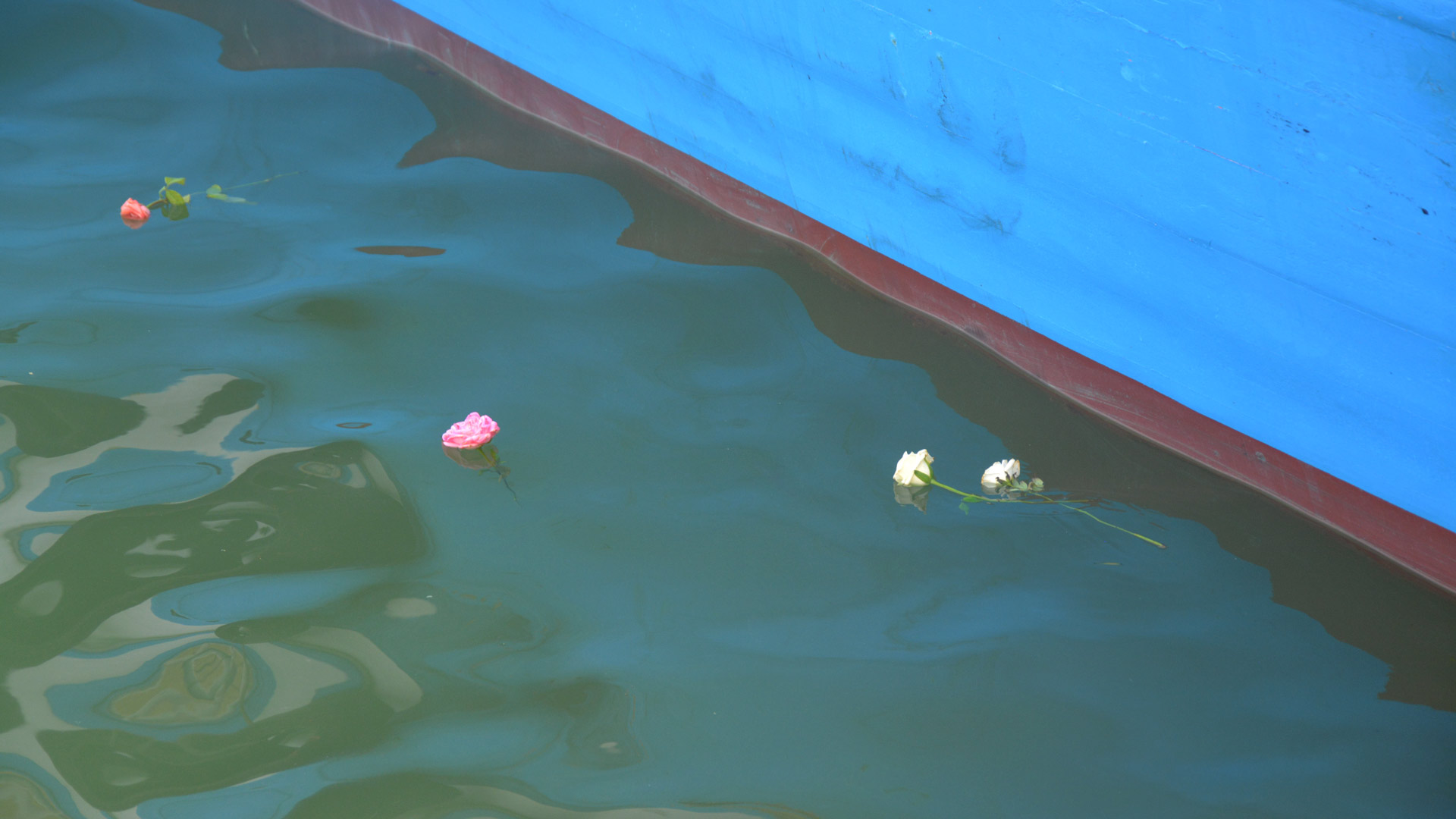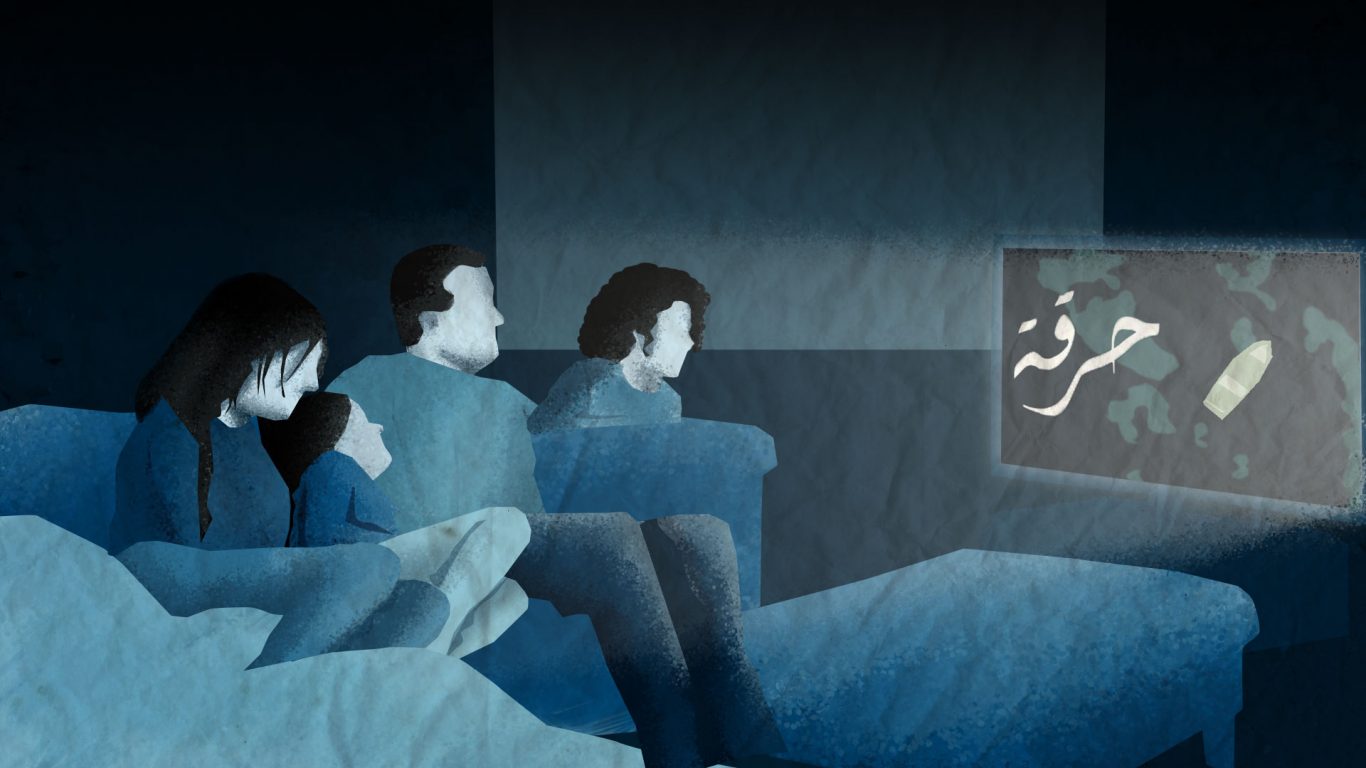This date was chosen in homage to the 80 people who went missing after a small boat departing from Tunisia sank off the coast of Italy. Ten years later, the mother of one of the lost at sea is still there, waiting for answers.
For the second edition of this “ CommemorAction”, some have come a long way. From Senegal to Algeria, Niger and Morocco, these families have come together for the same reason: They’re looking for answers and accountability. Other activists, supporters and researchers have also arrived from Europe.
In addition to its commemorative aspect, this gathering’s aim is also the convergence of the struggles of Northern Africa and Western Africa. “In spite of all my suffering, the fact of being here with other families of missing people, and fighting together, it brings me some peace,” Souad says.
Hope remains 10 years later
It has been exactly 10 years since Mohamed Ali disappeared without a trace. For his mother Mabrouka, “it’s as if it happened yesterday.” Mohamed Ali disappeared in the sinking disaster of Sept. 6, 2012. The small boat was carrying over 150 people from the Sfax region towards the Italian island of Lampedusa. Only 56 people were rescued.
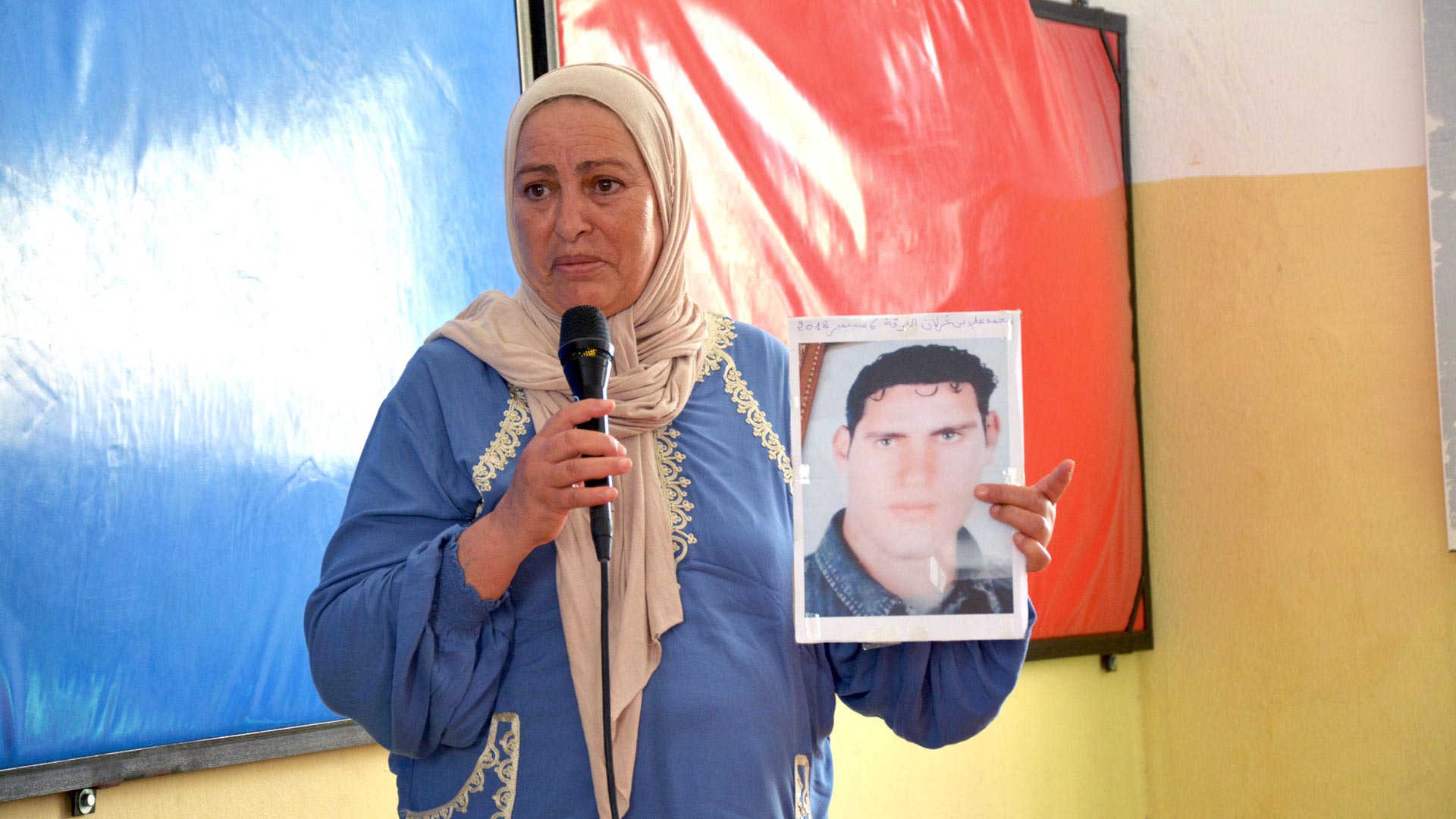
Whether they disappeared at sea or in the desert makes no difference to their families. “As long as I don’t see his body, my son is still alive,” several mothers say. Often, when they speak up, they do not give out their names but present themselves as “mothers” of somebody whose disappearance scars their speech and memory.
On the same subject
“The mothers and sisters gathered here maintain hope to find their loved ones,” says Latifa, whose brother Ramzi disappeared in 2011.
The symbolic image of mothers has, for years, stood at the center of the fight to retrieve missing people. Always on the frontline, women show up far more often than men at these gatherings. Several research works establish parallels between those mobilizations around the Mediterranean basin and those in Central and South America, where, in the same manner, mothers are glorified as the legitimate figureheads of the fight for missing persons.
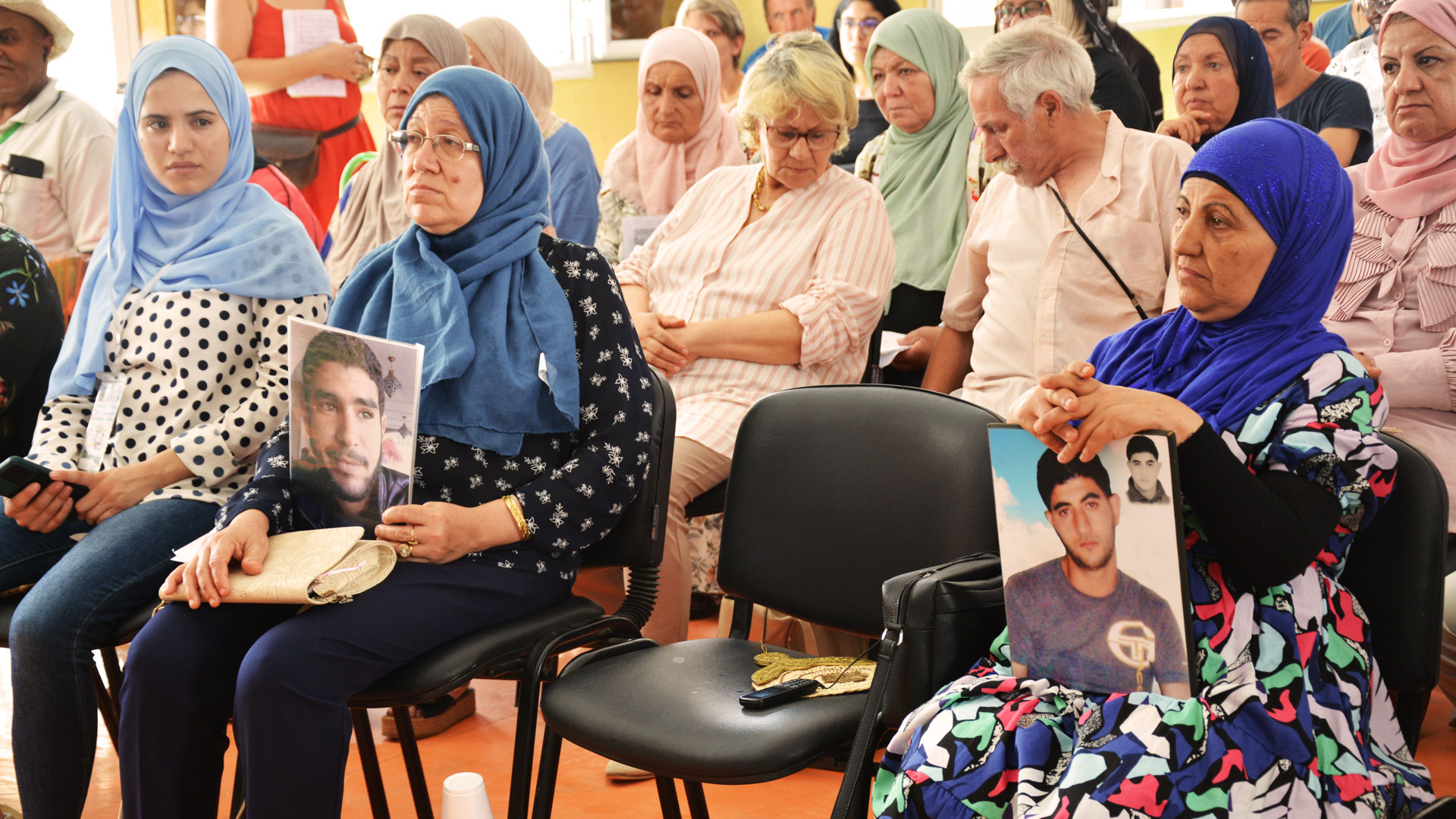
Awatef et Fatma, deux mères tenant les portraits de leurs fils disparus, assistent aux ateliers de discussion de la “CommemorAction”, le samedi 3 septembre à Zarzis. Crédit : Haïfa Mzalouat
They often hear rumors about their loved ones being spotted at a detention center in Italy or at a prison in Paris… With no information nor support from official institutions, families regularly find themselves paying European lawyers or informers in the hope to obtain answers, most of the time unsuccessfully.
In their quests for information, some families end up on the same registers. This happened to two mothers, Nadia and Mongia, the former from Algeria and the latter from Tunisia, when they realized that their sons, who went missing in 2010, had taken the same boat. 12 years later, they are meeting up in Zarzis to commemorate and plan what comes next in their fight.
“I discovered that many nationalities were concerned: Egypt, Sudan, Algeria, Mali, Cameroon, and others. This allows us to work together,” Latifa say .
Rachida, a Moroccan woman whose father disappeared two years ago, adds: “We can exchange information across the Maghreb. For instance, my father went through Algeria, and someone on the spot can help me find details or confirm rumors.”
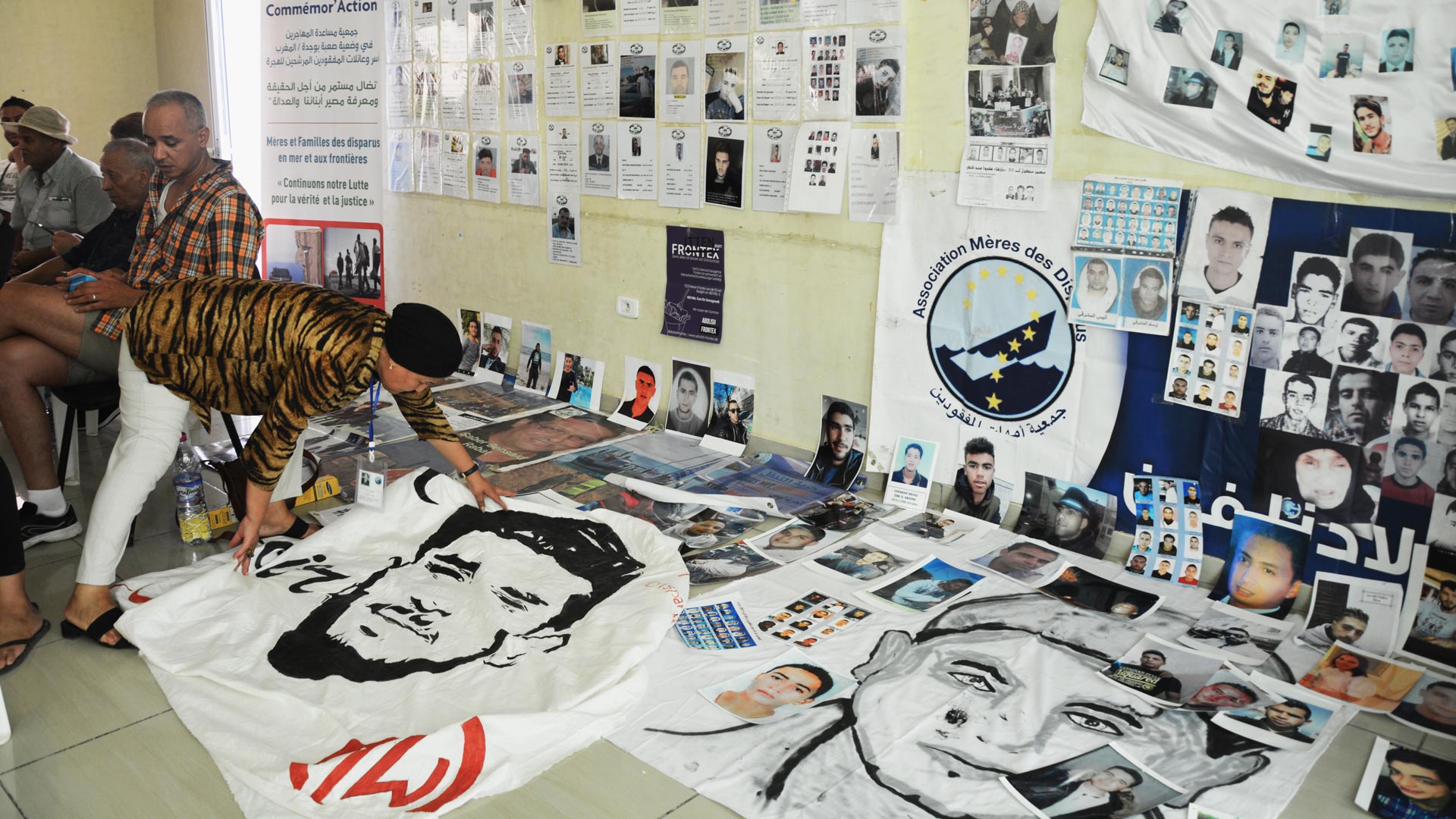
From a tragedy to an activists’ union
As its name suggests, the four-day meeting in Zarzis not only aims to commemorate the missing persons. CommemorAction’s attendees also seek to organize as an associative force and to convey a political message.
“The government completely shut down their doors on us,” says Fatma, whose son Ramzi went missing in 2011. She explains that for months, she visited police station after police station without finding any support until some officers told her to “calm down and go home.”
“This is why we created this association: in the hope of obtaining results,” she goes on.
Many salute the associative work already performed in Tunisia. “We owe a lot to Tunisian mothers and their years-long fight. In Morocco, until two or three years ago, I had never heard anything about those lost at sea,” Rachida says.
Since 2011, several families have taken part and set up protests in front of Tunisian institutions or the embassy of Italy. Their aim is to find answers. Is their child still alive? Did they die in the Mediterranean Sea? Is their anonymous body buried somewhere?
In this regard, associations have long demanded the creation of an Italian and Tunisian commission of inquiry assigned to these cases. In addition to the impossibility of going through the mourning process, the lack of information about these disappearances leads to daily complications for families. It is, for instance, difficult for them to have access to government assistance that they could have received with an official death certificate.
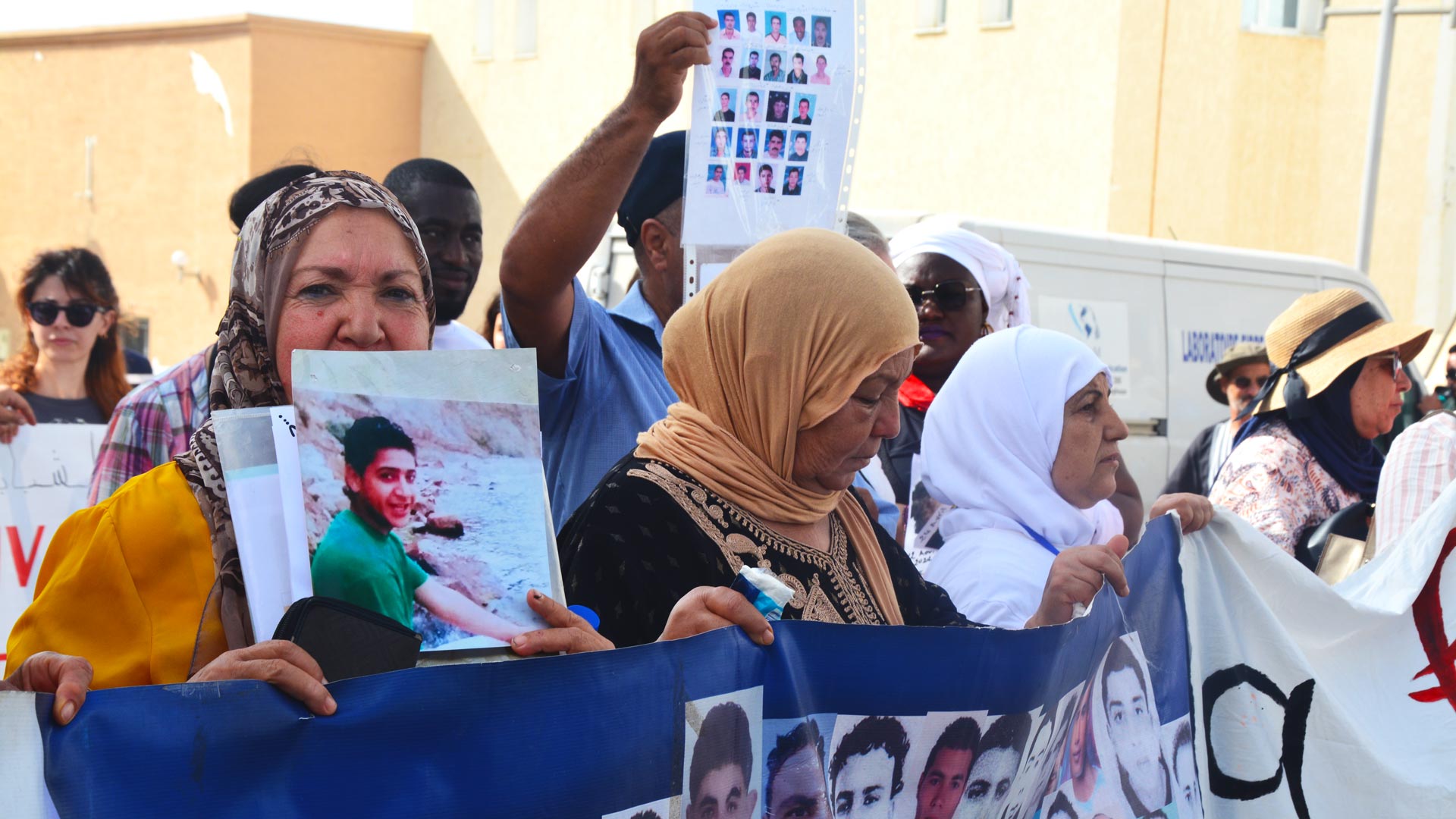
In 2015, their request finally reached the Carthage Palace. On March 4, former Tunisian President Béji Caid Essebsi committed himself to create a commission inquiry, a promise with no further action taken. His successor Kais Saied, who was elected in September 2019, has already pledged that he would fight against “ illegal immigration”, but never took any formal position regarding the cases of missing persons.
Seven years later, in Zarzis’ youth center, discussion workshops come one after another. Topics revolve around the future course of actions — sit-ins, protests, transnational coalition, etc. — and what the commemoration will look like. The collective decides to organize a march on Tuesday, Sept. 6, from the delegation of Zarzis to the beach. Some collapse in tears at the sight of the sea.
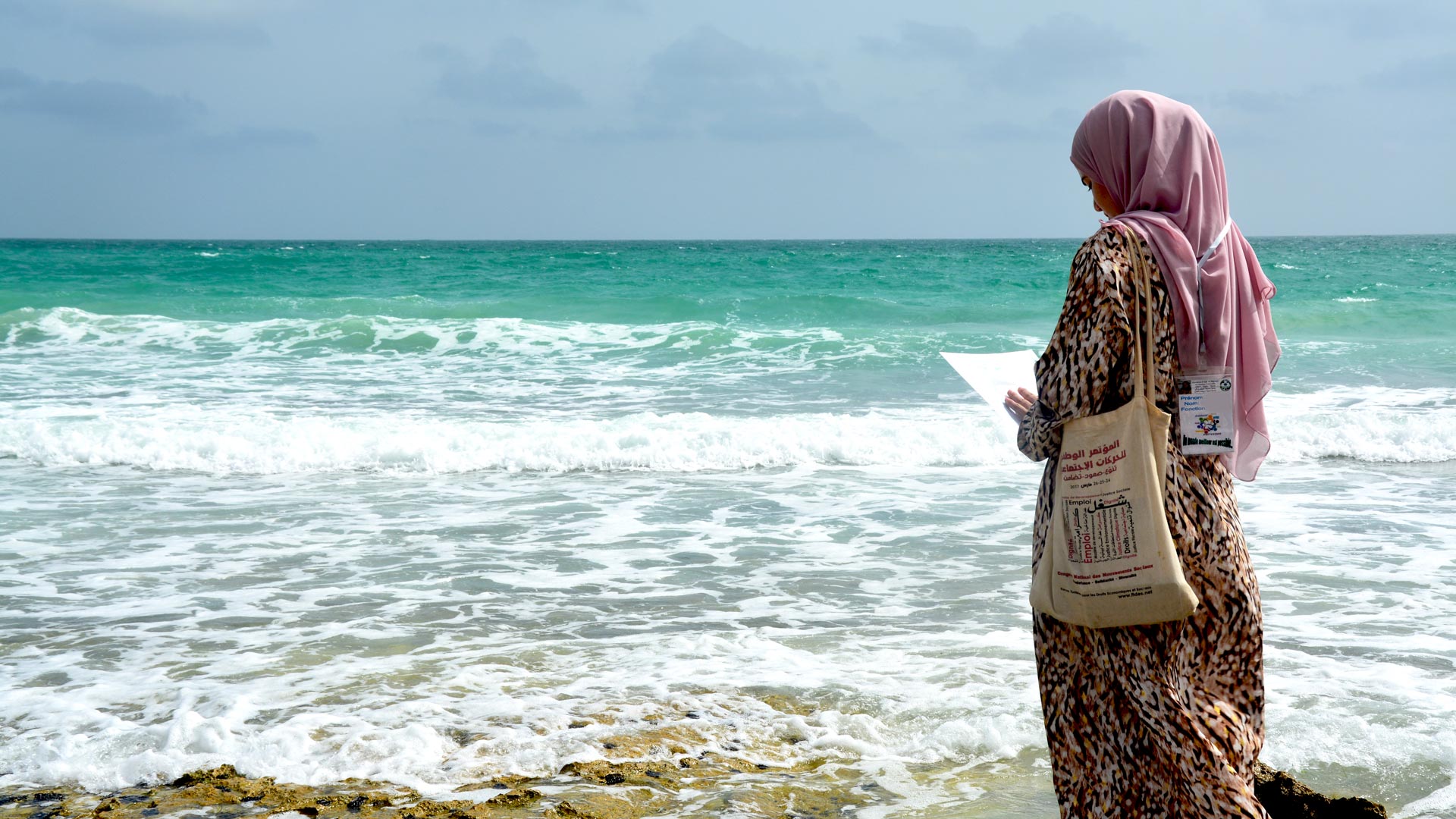
The procession then heads towards the port, where fishermen left two boats at their disposal. Their goal is to throw flowers in the open sea, as a tribute. But even though they received an authorization, the National Guard won’t allow their ships to leave. The officers argue that the boats cannot carry more than 15 people. Some protesters suggest taking several trips, others refuse. The boats eventually sail off a few meters from the quay and flowers are thrown in the harbor waters.
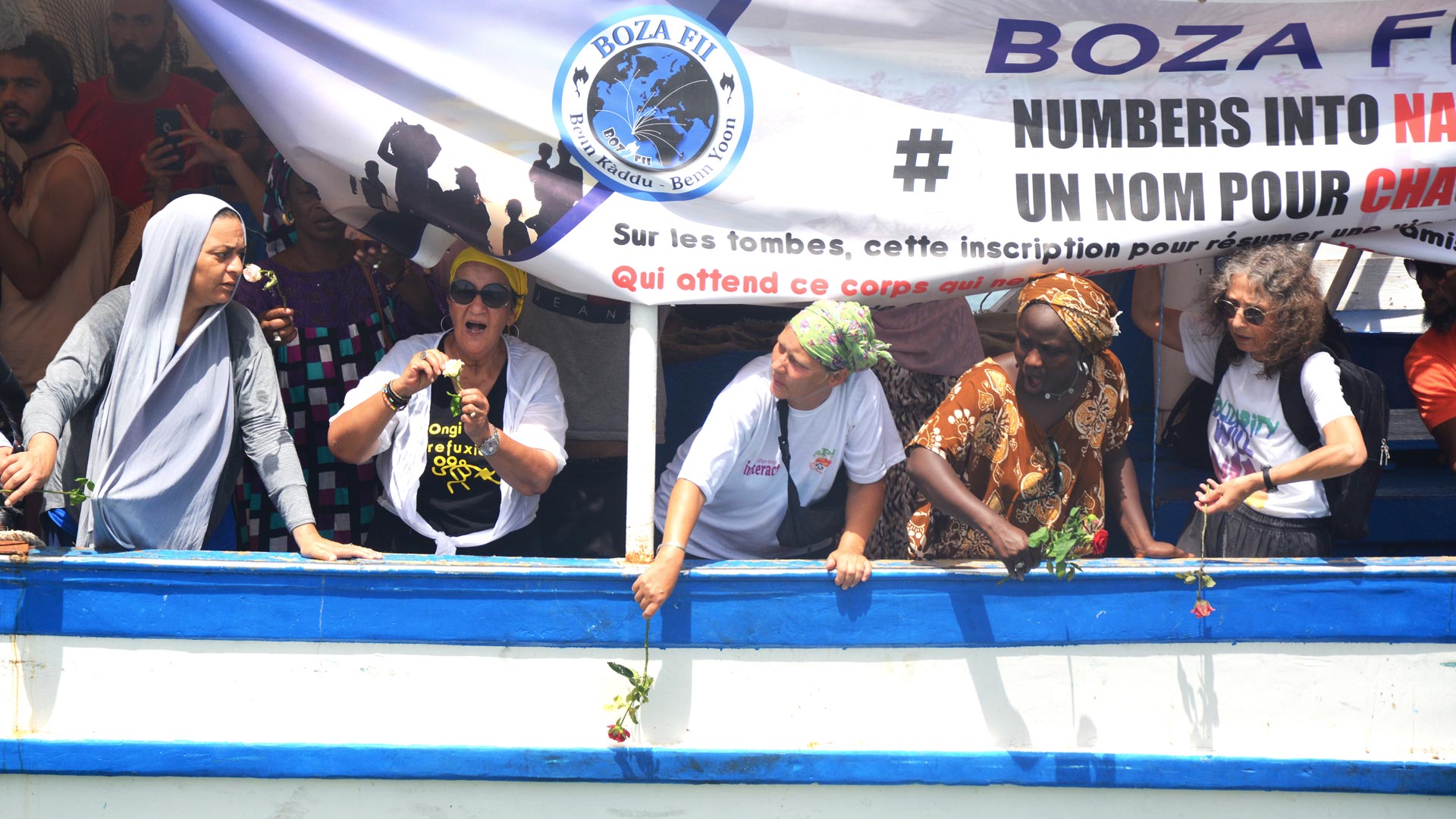
Des fleurs sont lancées à l’eau en hommage aux disparu·es. Crédit : Haïfa Mzalouat
A haven of support for the families of those lost at sea
During the discussions held in Zarzis’ youth center, many attendees denounce the criminalization of migrants and those who try to support and defend them, such as ships’ captains.
In Zarzis, fishermen have offered longtime support to the families of those lost at sea. They have been rallying for years to save migrants adrift in the Mediterranean Sea, which puts them at risk of prosecution.
In 2018, fisherman Chamseddine Bourrassine and his crew are arrested in Italy. They are accused of being migrant traffickers after having rescued migrants adrift, which earned them a month in custody. The families of the lost at sea were part of the mobilization to set them free, helping to set up protests, especially in front of the embassy of Italy. “The demonstration really helped to put pressure on Italian and Tunisian authorities,” recalls Valentina Zagaria, an anthropologist specializing in migrations who did fieldwork in Zarzis for two years, and now presents the CommemorAction.
This event put families in touch with fishermen, helping them set a network for their next actions. The CommemorAction served as an opportunity for fishermen, among whom Chamseddine, to meet the mothers of missing persons who had rallied their cause. They expressed mutual solidarity during those days in Zarzis.
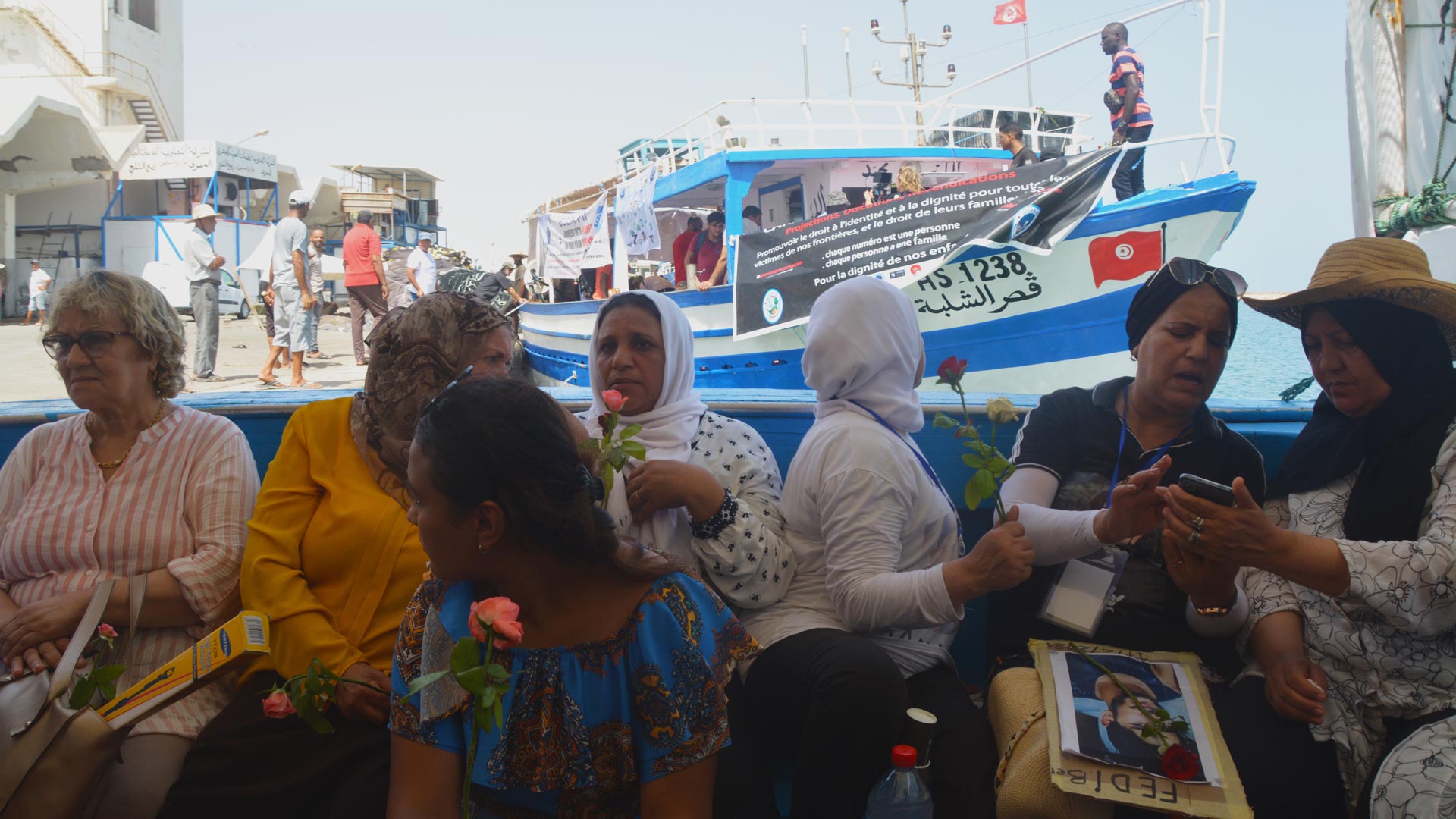
This town is, by nature, much concerned with migration issues. “The fact that Zarzis exists on this double border with the European Union and Libya makes so many people here feel very sensible about these issues and so they become involved (...) just by living on this double border,” Valentina Zagaria explains.
Whether as individuals or in the name of the association “Zarzis the fisherman”, local fishermen become involved “out of necessity.” Zarzis being a town with a high level of emigration, everyone is bound to know people who emigrated and, among them, many missing persons.
“Every fisherman in Zarzis has had to save migrants in great danger. Sometimes, we get calls, or we happen to come across them,” Captain Chamseddine Bourassine said to inkyfada in 2018 after he was arrested in Italy.
In addition to the rescues, the fishermen also help to build a network between families of lost at sea, activists on both sides of the Mediterranean and citizens. "Many rescue ships like Sea Watch and Mediterranea have stopped in Zarzis and know the fishermen," Valentina Zagaria says. "Over the years, links between different people — especially in Italy, France and Tunisia — have been forged, and these personal contacts step in when there is a problem, when families have no news, etc. All these different networks then take action to try to get information. For example, several emigrants who have been living in Europe for a long time and who are involved in the defense of the rights of immigrant workers help to find lawyers or to carry out research in France or in Italy."
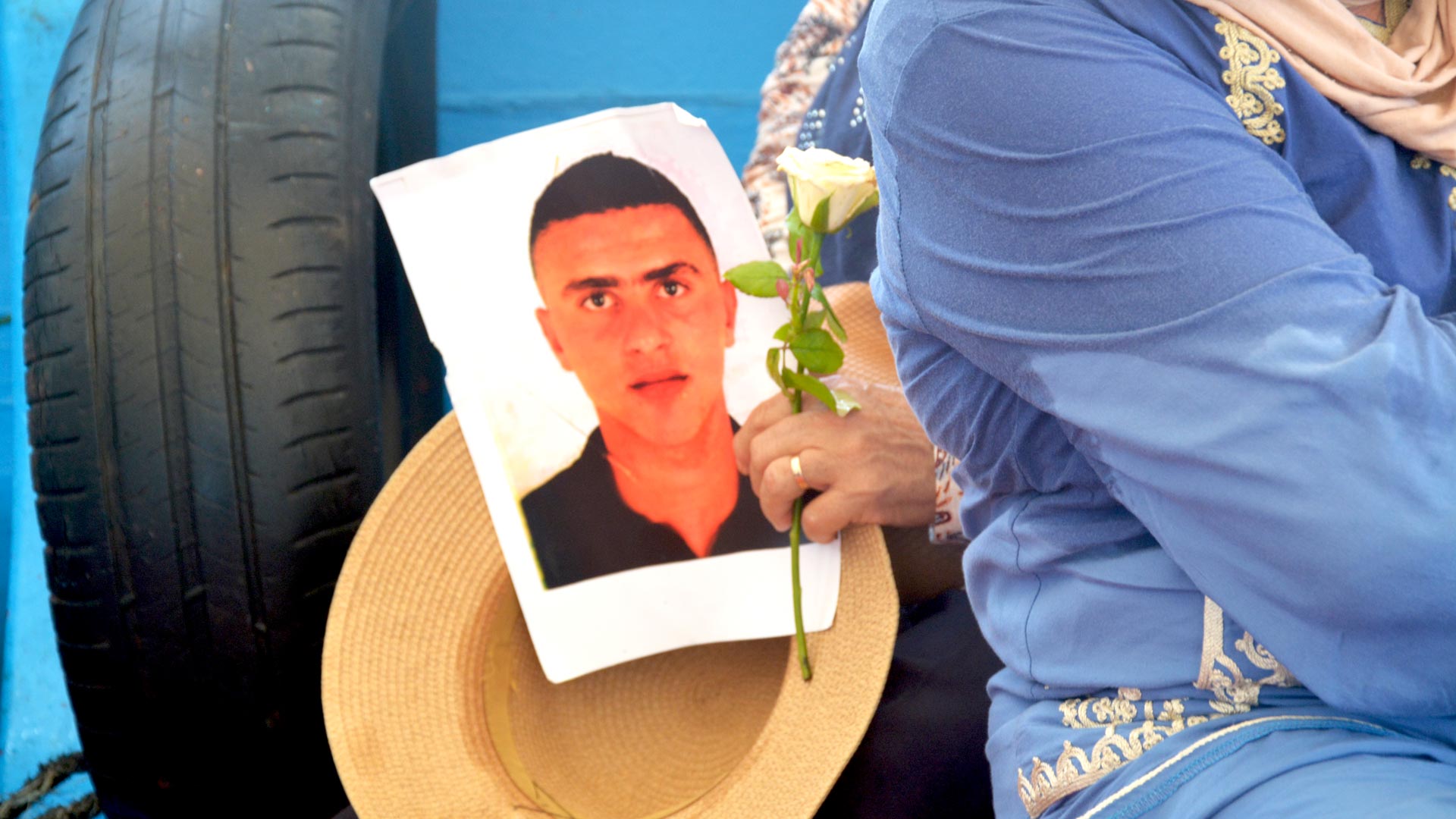
Apart from the fishermen, other figures from Zarzis step up for the missing people and more generally for the rights of migrants. “There are several individuals and associations in Zarzis who did not necessarily work on migration issues or who were not particularly militant, but who became involved in the search for their relatives or young people from their neighborhoods when we have no news from a boat," Valentina Zagaria says.
One of the best-known figures is Chamseddine Marzoug, who has been actively involved in the "cemetery of the unknowns" to offer a burial to migrants who wash up on the shores of Zarzis. Most of the time, he has no information about the bodies he discovers, which are not always recognizable. On each grave, he writes a date and a few indications, which will perhaps be used to recognize these individuals in the future.
During his speech to the assembly gathered for the CommemorAction, Souad particularly wants to thank him for his initiative.
"Maybe my son is buried there" she says, grateful
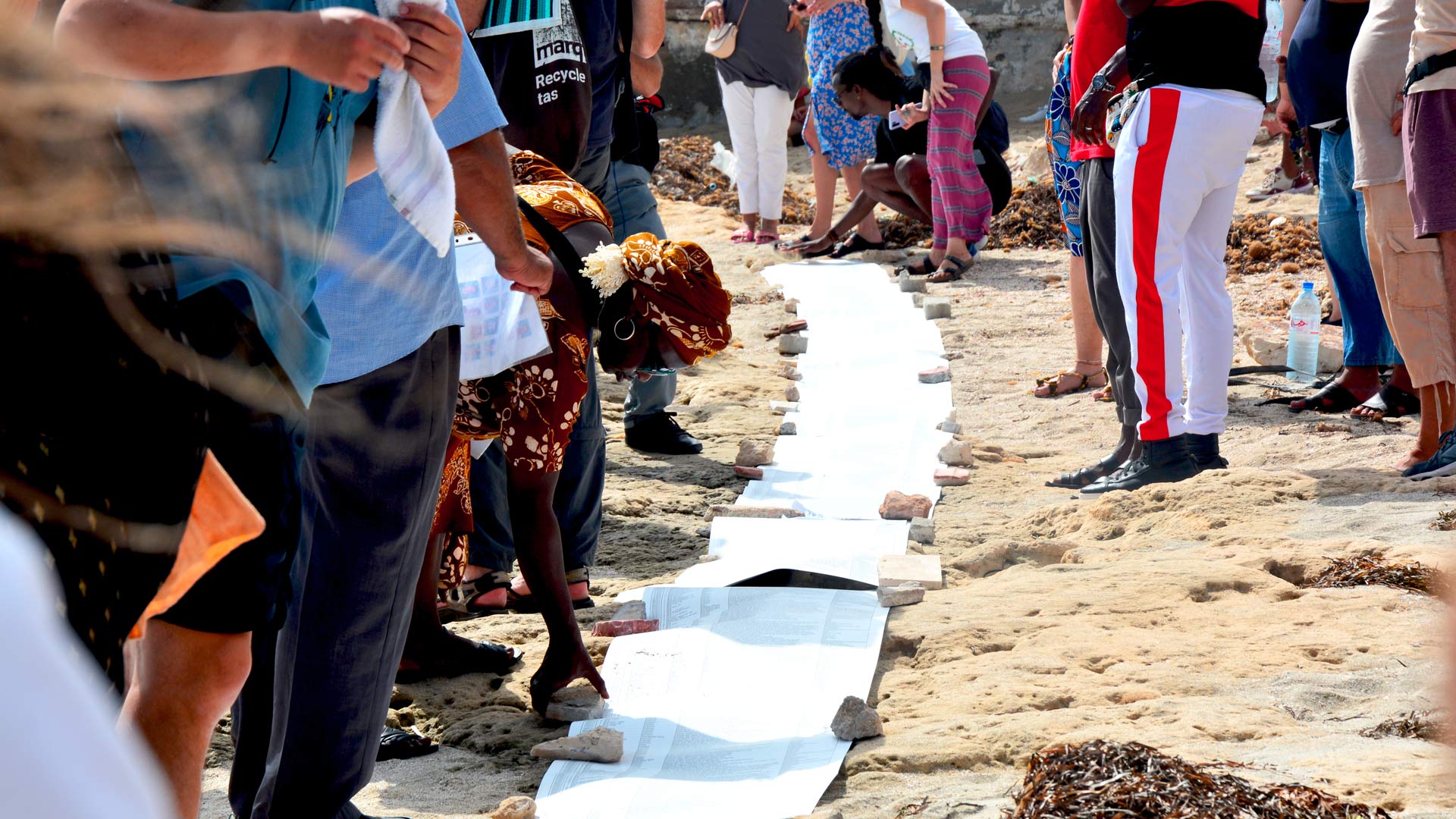
“Tunisia, Italy and the EU are responsible for this”
Throughout the CommemorAction, many people are overcome with emotion as they tell the story of their missing loved ones. But in their speeches, they denounce the lack of responsiveness of their respective states, the European policies and the restrictions on freedom of movement that push them down the path of so-called irregular immigration.
"Why do people have the right to have visas and my father does not? He asked several times for tourist visas and each time, it was refused, refused, refused... Why?" Rachida asks. She believes this is what pushed her father to leave, with the goal to reach Spain.
"Tunisia, Italy, the European Union, they are all criminals, it’s a real mafia," Latifa says. During the demonstration, many banners call for the opening of the borders and an end to the visa policy.
For years, restrictions on movement to Europe have been increasingly severe without affecting the existence of the migration phenomenon. On the other hand, according to researcher Farida Souiah, "they greatly influence the way in which this project is carried out" and "create 'irregular' migration that the states on the southern and northern shores of the Mediterranean choose to combat by implementing increasingly secure policies." For example, in Tunisia, this shows as an increase in departures to Europe through Serbia, the only European country that does not require a visa for Tunisians.
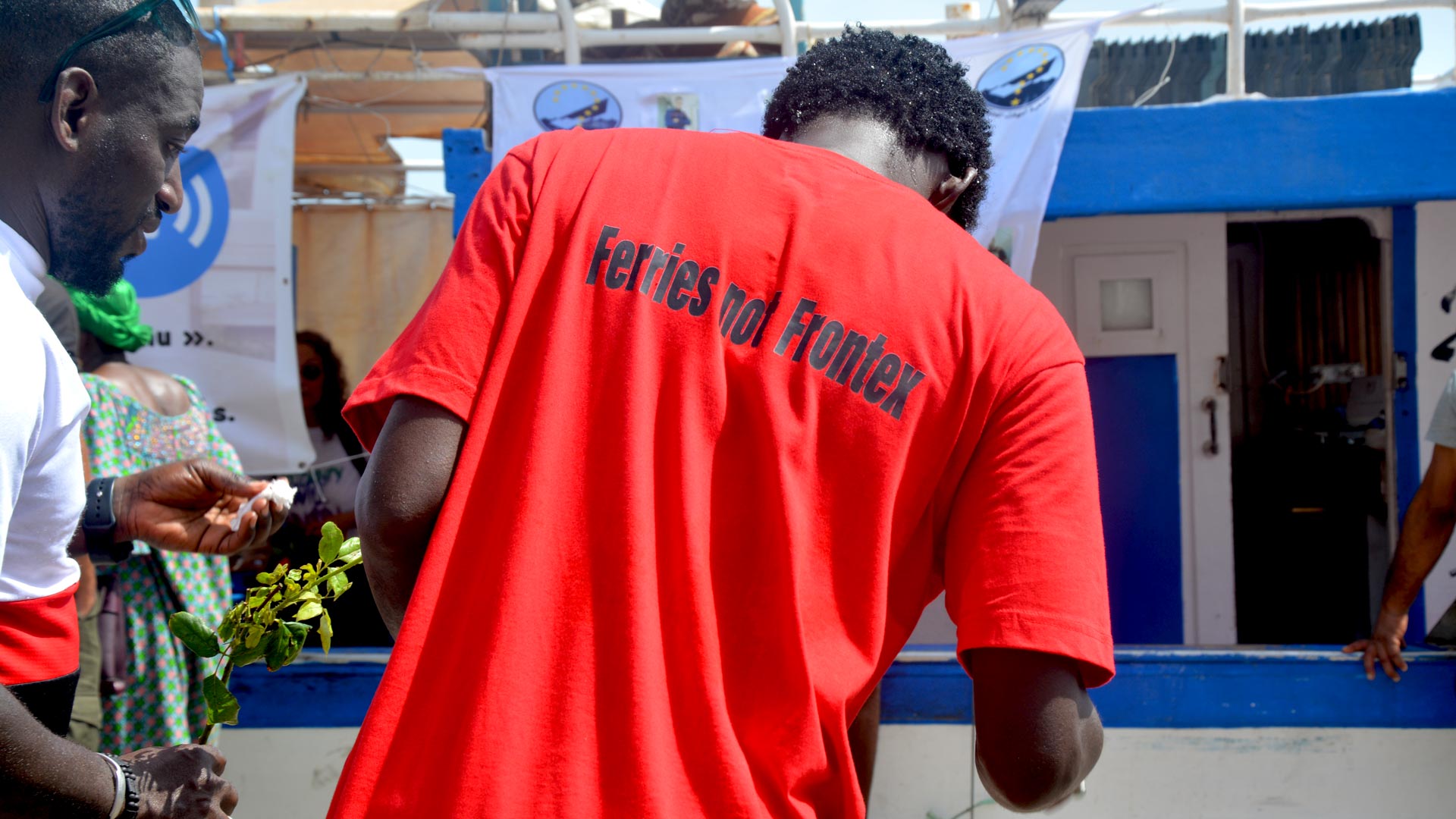
Un militant arbore un t-shirt contre l’organisation européenne Frontex, chargée de protéger les frontières de l’espace Schengen. Crédit : Haïfa Mzalouat
Regardless, these states and several international organizations continue to enforce a discourse and programs that aim to limit this phenomenon by reinforcing the borders and raising awareness about the risks of migration.
On the same subject
Some even personally accuse individuals. On Twitter, in reaction to photos of the demonstration in Zarzis, special envoy of the United Nations High Commissioner for Refugees (UNHCR) Vincent Cochetel directly blamed the mothers of the lost at sea, accusing them of encouraging their children to migrate.
Grieving for the loss. But the same mothers had no problemencouraging or funding their children to embarkon those dangerous journeys. Like in Senegal, symbolically prosecuting parents for putting at risk their children could trigger serious attitudinal change on death journeys. https://t.co/lRAwT4MRWA
—vincentcochetel (@cochetel) September 6, 2022
However, the interviewed mothers’ side of the story differs much from Vincent Cochetel's accusations. Many of them claim to have discovered that their loved ones were on a boat heading for Europe after their departure. "I had no idea that my brother was planning to leave, he just called me to say 'I'm on a boat, I'll be arriving in Italy soon'," Latifa says. "I haven't heard from him since that phone call.”
As for Souad, she takes a clear stand and, given the risks, seeks to dissuade anyone from undertaking this journey. But despite the disappearance of her eldest son, her second son still plans to emigrate. "In every family, there are at least one, two or three people thinking of leaving. They cannot travel, they don't have visas..." she laments.
Following reactions to his publication, Vincent Cochetel subsequently apologized but several organizations have called on him to resign, arguing that this is not his first polemical declaration. Beyond this controversy, the UNHCR is regularly singled out in Tunisia for its lack of protection of migrants.
Les familles de disparu·es ont également réagi au message de Vincent Cochetel. Dans leurs messages, elles soulignent qu’au-delà de la disparition de leurs proches, la dénonciation des frontières et des politiques migratoires sont au cœur de leur combat et leurs revendications.
"It is the visa and border system that has put migrants in danger, not their mothers. It is the fault of migration policies, they are the ones that cause the death of people crossing the Mediterranean Sea. That’s why we will continue to protest for freedom of movement. You can't kill our demand for truth and justice," says Jalila, the mother of a person lost at sea.
